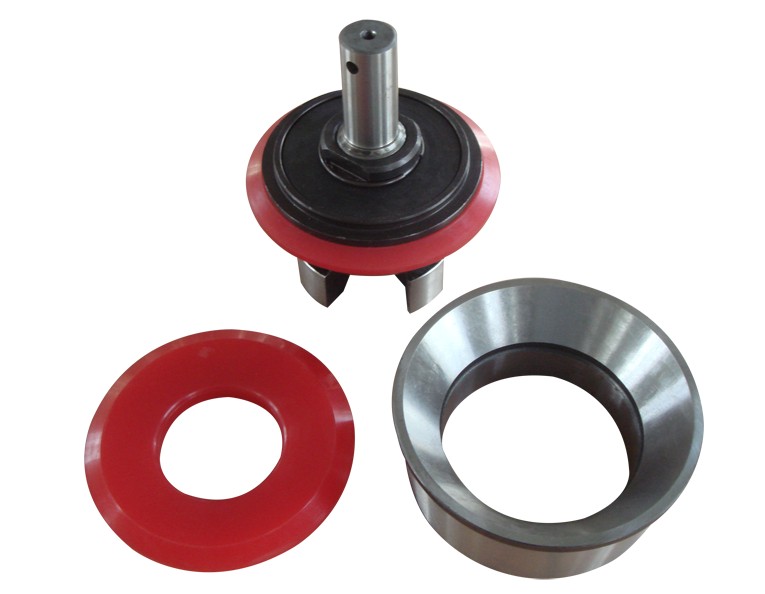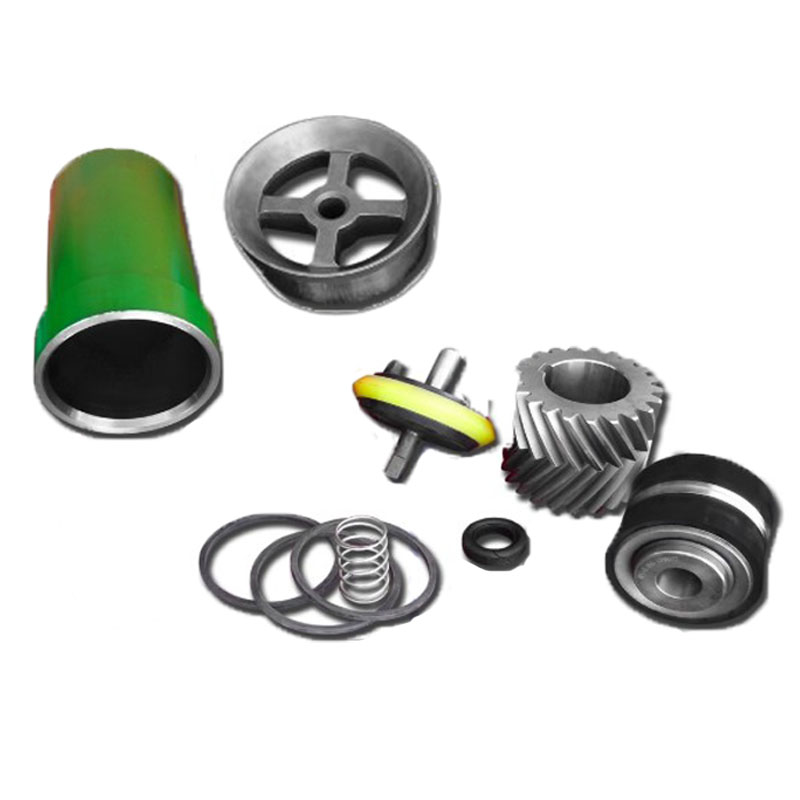1. What Is a Mud Pump Valve Body & Valve Assembly?
In drilling operations—whether for oil, gas, water wells, or geothermal energy—mud pumps are among the most critical components. These pumps deliver drilling fluid (also known as mud) at high pressure to the wellbore, playing vital roles in cooling the drill bit, removing cuttings, and stabilizing the borehole walls.
The hydraulic end of the mud pump consists of essential components like liners, pistons, valve bodies, valve seats, and valve inserts. Among these, the valve body and valve assembly act as the directional control unit of fluid flow—similar to a check valve—ensuring one-way flow to prevent backflow and minimize pressure loss.
2. Structure of the Valve Assembly
A standard mud pump valve assembly typically includes the following components:
| Part Name | Function | Common Material |
|---|---|---|
| Valve Body | Supports and guides valve insert movement | High-strength forged or alloy steel |
| Valve Insert | Seals fluid passage, opens/closes flow path | Polyurethane or natural rubber |
| Valve Seat | Matches with the valve body for sealing | 20CrMnTi carburized steel |
| Valve Guide | Maintains vertical movement, prevents misalign | Quenched & tempered steel |
| Valve Nut/Cap/Snap Ring | Secures and supports sealing elements | Alloy steel |
| Steel Ball or Wing | Provides one-way control or assists sealing | Quenched steel |
Note: The structure may vary slightly between pump models, but the operating principle remains consistent.

3. Classification by Structure: 3-Rib vs 4-Rib Valves
3-Rib Valve
Named for the three ribs at the base of the valve body, this design minimizes fluid resistance and increases flow capacity. It’s ideal for moderate pressure environments.
Advantages:
- Higher flow capacity
- Easier maintenance and insert replacement
- Suitable for long-duration continuous drilling
4-Rib Valve
This design features enhanced structural strength, commonly used in high-pressure jet drilling applications.
Advantages:
- Superior strength and impact resistance
- Excellent wear resistance
- Best for deep wells, high-pressure wells, and high solid-content mud
Selection Tip:
- Use 4-rib valves for high-pressure, high-load conditions
- Choose 3-rib valves for high-flow, continuous operations
4. Key Materials: 20CrMnTi Steel & Polyurethane Inserts
Valve Body & Seat – 20CrMnTi Alloy Steel
- Process: Carburized and quenched
- Surface Hardness: ≥ HRC60
- Benefits:
- High strength and toughness
- Excellent wear resistance
- Precision sealing and dimensional stability
Valve Insert – Polyurethane
Polyurethane is a modern elastomer widely used in harsh drilling environments.
- Outstanding abrasion and corrosion resistance
- Effective for over 300 hours of use
- Superior to conventional rubber inserts in lifespan

5. Working Principle
The valve assembly functions as a one-way valve:
- Suction Stroke: The piston retracts, the valve opens (insert rises), mud flows into the fluid end
- Discharge Stroke: The piston pushes forward, the insert seals the seat, mud is discharged into the drill string
This cycle repeats continuously to support drilling operations.
6. Maintenance & Service Life Tips
To ensure reliable long-term performance:
- Inspect valve inserts and seats every 500–800 hours
- Match valve body and seat material properly
- Use OEM or API-certified components
- Maintain fluid cleanliness to prevent seat erosion
7. Application Fields
BESDRILL high-performance valve assemblies are widely used in:
Oil & gas drilling (onshore and offshore)
Water well drilling & irrigation systems
Geothermal energy projects
Horizontal Directional Drilling (HDD)
High-pressure slurry transportation
8. Summary & Selection Table
| Application Type | Recommended Valve | Recommended Insert |
|---|---|---|
| High-pressure deep wells | 4-Rib Valve | Polyurethane |
| Medium-low pressure ops | 3-Rib Valve | PU or Nitrile Rubber |
| Mud with high solids | 4-Rib + Hardened Seat | Polyurethane |
| Low-maintenance priority | 3-Rib Valve | Standard PU |